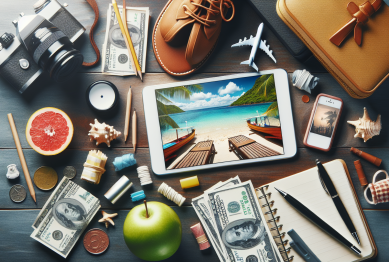Social media has transformed from a simple communication tool into a powerful driver of consumer behavior. Platforms like Instagram, TikTok, Facebook, and X (formerly Twitter) now play a central role in how people discover, evaluate, and purchase products and services. Unlike traditional advertising, social media creates a dynamic space where brands and consumers interact in real time. The impact of social media on consumer behavior is profound, shaping purchasing decisions, brand loyalty, and even personal identity. Understanding these trends is essential for businesses that want to remain competitive in today’s digital marketplace.

The Shift from Traditional to Digital Influence
For decades, television, print, and radio dominated advertising strategies. Consumers were passive recipients of brand messaging, with little opportunity to engage. Social media changed this dynamic entirely. Today, people don’t just consume advertising—they engage with it, question it, and share it within their networks. This interactivity allows consumers to take a more active role in shaping brand reputations. The shift means that word-of-mouth marketing, once limited to friends and family, now happens at global scale. A single review, comment, or viral video can influence millions of potential customers.
Social Media as a Discovery Engine
One of the most significant impacts of social media on consumer behavior is product discovery. Platforms like Instagram and TikTok function as search engines for lifestyle trends. Younger audiences, particularly Gen Z, often use TikTok before Google when looking for product recommendations or reviews. Visual content makes discovery immediate and engaging. For example, a short video showcasing a new skincare product can quickly build interest and trust. Brands that optimize their social media presence with engaging, authentic content increase their chances of being discovered organically.
The Power of Influencer Marketing
Influencer marketing has become one of the most effective strategies for shaping consumer behavior. Social media influencers—whether celebrities, niche experts, or micro-influencers with smaller but loyal audiences—have a powerful impact on purchasing decisions. According to studies, consumers are more likely to trust recommendations from individuals they follow than traditional advertisements. Influencers offer a sense of relatability and authenticity that brands often struggle to achieve on their own. The success of influencer campaigns highlights how deeply personal connections on social media can affect buying choices.
Social Proof and Peer Influence
Humans are naturally influenced by the behaviors and opinions of others. Social media amplifies this through likes, shares, and reviews. When consumers see friends or trusted figures endorsing a product, they are more likely to purchase it themselves. This phenomenon, known as social proof, has become a cornerstone of digital marketing. Platforms like Yelp, TripAdvisor, and even Amazon reviews act as extensions of this principle, guiding consumer choices through collective experience. Positive reviews and high engagement serve as trust signals, reducing uncertainty and encouraging purchases.
Emotional Engagement and Brand Identity
Another way social media impacts consumer behavior is through emotional engagement. Brands that successfully connect with audiences on a personal level foster stronger loyalty. Storytelling plays a crucial role in this process. For instance, companies that highlight their sustainability efforts or community impact often resonate with socially conscious consumers. Emotional marketing helps consumers feel that they are part of a larger story, making them more likely to stay loyal to a brand. Social media creates a two-way channel for these emotional connections, where consumers can directly interact with and shape a brand’s narrative.
The Rise of Social Commerce
E-commerce and social media have merged into what is now known as social commerce. Features like Instagram Shopping, TikTok Shop, and Facebook Marketplace allow consumers to purchase directly within apps. This seamless integration shortens the buying journey by eliminating the need to visit external websites. Social commerce also enhances impulse buying, as users can immediately act on a recommendation they see while scrolling. This trend highlights how social media not only influences behavior but also directly facilitates transactions.
Data-Driven Personalization
Behind the scenes, social media platforms collect vast amounts of consumer data, from browsing habits to engagement patterns. This data enables highly personalized advertising. Consumers increasingly expect recommendations tailored to their interests, and social media delivers this through algorithm-driven feeds and targeted ads. While this raises questions about privacy, it also improves relevance, making consumers more likely to engage with and purchase from brands that appear in their feeds. The personalization of content is one of the most powerful ways social media shapes consumer expectations and behaviors.
The Role of Trends and Virality
Virality is a unique aspect of social media that directly impacts consumer behavior. A product that goes viral can experience exponential sales growth overnight. For example, certain makeup products, snacks, or tech gadgets have sold out worldwide after trending on TikTok. The unpredictability of virality makes it difficult for brands to plan, but it also highlights the importance of staying engaged and responsive to digital trends. Brands that can quickly adapt to viral movements stand to benefit the most from these sudden waves of consumer interest.
Challenges and Risks for Consumers and Brands
While social media offers enormous opportunities, it also presents challenges. Consumers may feel overwhelmed by constant advertising, leading to ad fatigue. Additionally, the authenticity of influencer endorsements can sometimes be questionable, creating mistrust. Fake reviews, misinformation, and the pressure of comparison also influence consumer well-being negatively. For brands, the biggest risk lies in losing control of their narrative. Negative reviews or viral criticism can harm reputations in a matter of hours. Businesses must balance transparency, authenticity, and responsiveness to manage these risks effectively.
The Future of Social Media and Consumer Behavior
Looking ahead, the impact of social media on consumer behavior will only grow. Emerging technologies such as augmented reality (AR) and virtual reality (VR) are already being integrated into social platforms, offering immersive shopping experiences. For example, AR try-on features for fashion and beauty products allow consumers to visualize items before purchase, bridging the gap between online and offline shopping. As artificial intelligence continues to advance, even more sophisticated personalization and predictive analytics will shape how consumers interact with brands. Companies that embrace these innovations will remain at the forefront of consumer engagement.
Final Thoughts
The impact of social media on consumer behavior is undeniable, reshaping how people discover, evaluate, and purchase products. From influencer marketing and social proof to personalized advertising and social commerce, platforms are driving fundamental shifts in consumer expectations and habits. While challenges such as misinformation and privacy concerns remain, the opportunities for brands to build meaningful connections are immense. Businesses that understand and adapt to these dynamics will not only influence consumer behavior but also foster long-term loyalty and growth in the digital era.
References
Deloitte. 2023 Digital Media Trends https://www.deloitte.com/us/en/pages/technology-media-and-telecommunications/articles/digital-media-trends-consumption-habits-survey.html
Harvard Business Review. How Brands Can Build Better Relationships on Social Media. https://hbr.org/2020/01/how-brands-can-build-better-relationships-on-social-media









